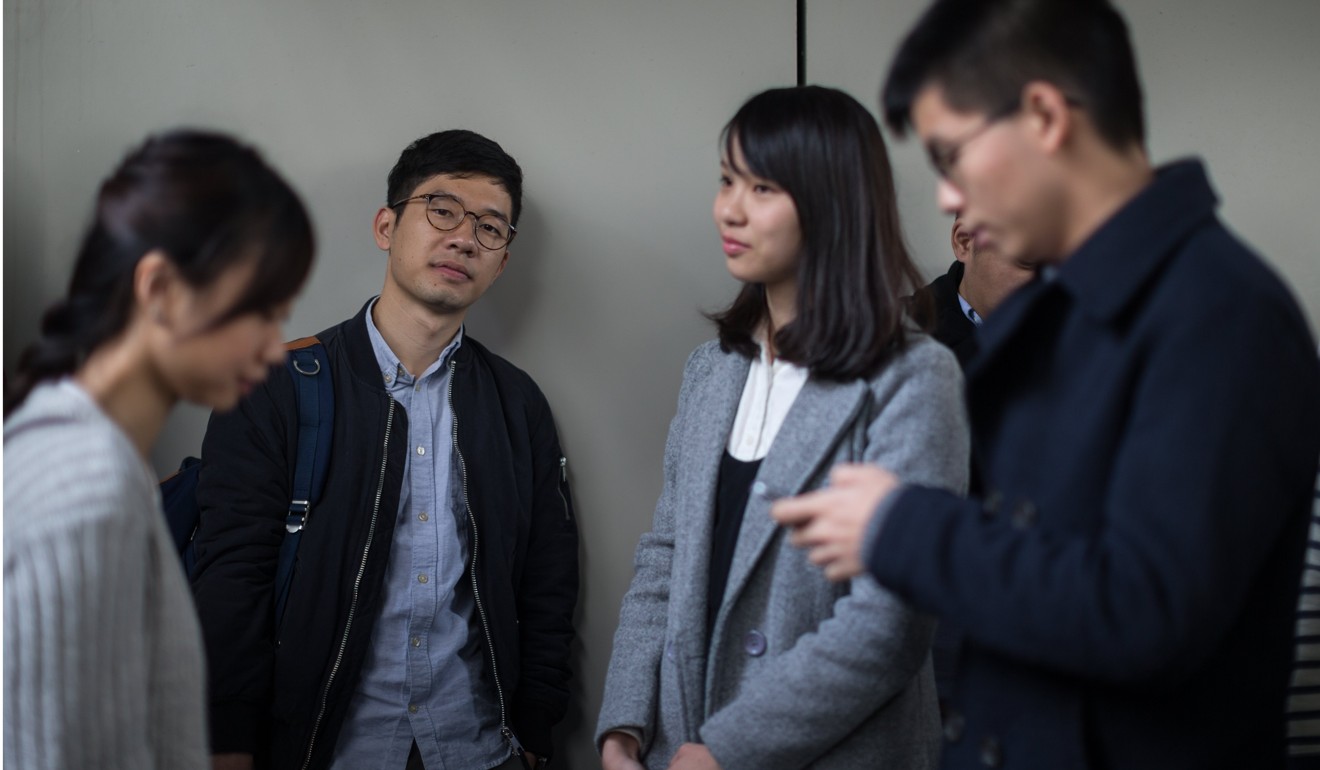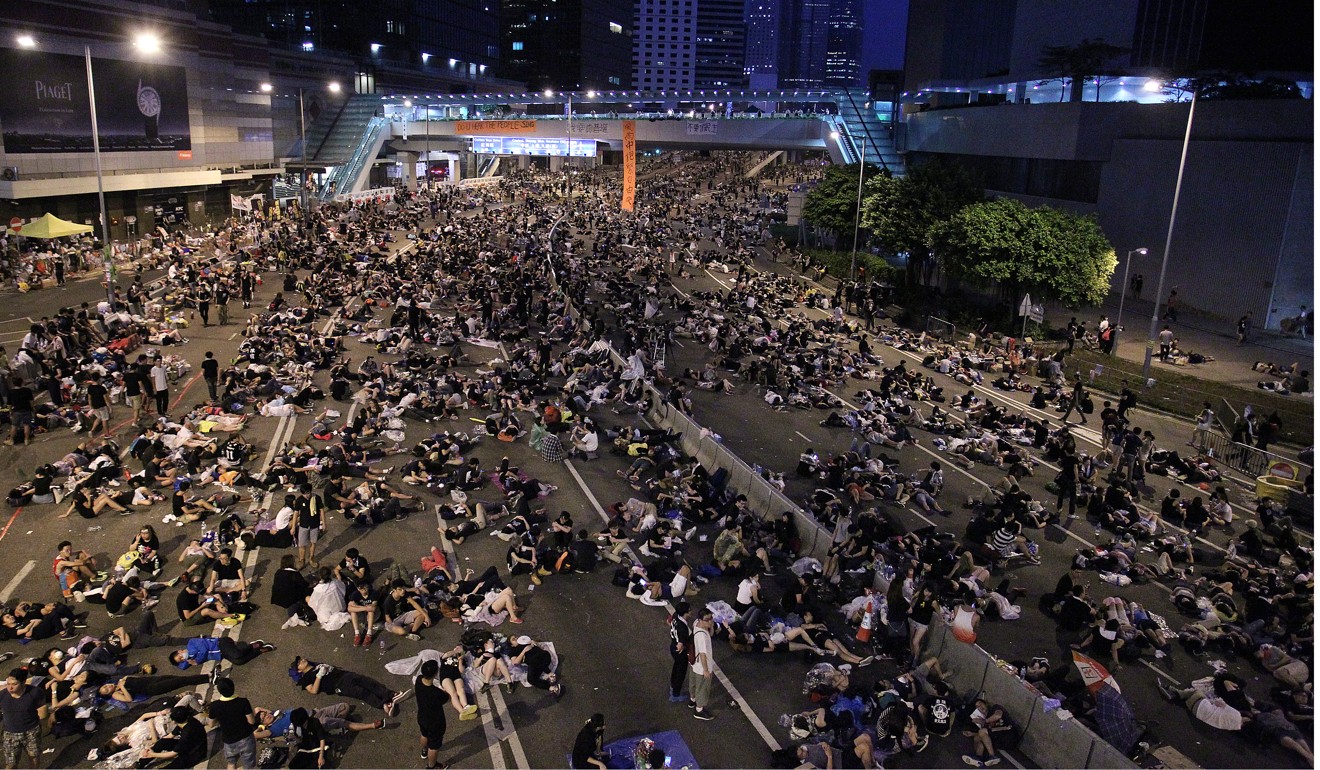
Denying Chinese sovereignty is like rejecting your own mother, says Hong Kong poll hopeful Judy Chan
Pro-establishment candidate for hotly contested by-election on March 11 frames ballot battle as one of ‘rationality vs irrationality’
Potshots aimed at by-election candidate Judy Chan Ka-pui over her stuttering English last week illustrate just how scrappy the race for the Hong Kong Island seat is likely to get before polling on March 11.
Chan, 37, announced her bid for the seat in the Hong Kong legislature last Monday, flanked by New People’s Party allies, including mentor and former government security minister Regina Ip Lau Suk-yee.
Only a day later a video clip of her answering an impromptu question in English went viral as many mocked her far-from-fluent reply. Some even questioned if she had really lived overseas and attended a foreign university.
Chan acted fast to counter the criticism by posting a Facebook video on Thursday explaining that she had been nervous and had not practised her English in a long time. She even disclosed a qualification certificate from Monash University and her Australian student card.
The furore may have appeared trivial to some, but it also served as a sign of the fierce battle that lies ahead and intensity of feeling involved as campaigning heats up.

Chan’s main competitor is Demosisto’s Agnes Chow Ting, 21, who is aiming to become the city’s youngest ever lawmaker, but who runs the risk of being barred from the election over her calls for “self-determination” for Hong Kong.
Candidates are required to sign a declaration stating they accept Hong Kong is part of China. The requirement was put in place by authorities in 2016 amid calls from a small but growing number of residents for independence for the city.
Self-determination views could lead to by-election ban, government adviser says amid debate over Agnes Chow’s Legco bid
Tensions have been running high ever since Chow’s party colleague Nathan Law Kwun-chung was disqualified from the seat, along with five other pro-democracy lawmakers, after Beijing ruled in 2016 that the manner in which they had taken their oaths of office was unconstitutional.
Chow is now leading the charge from Hong Kong’s pro-democracy camp of politicians to hold on to Law’s old seat, against a pro-establishment bloc led by Chan that has been emboldened by the oath-taking saga.

In an interview with the Post last Wednesday, Chan said that “safeguarding the rule of law and reviving rationality” was her campaign slogan. She framed the battle as “rationality vs irrationality”.
She hit out at Hong Kong’s 2014 pro-democracy Occupy movement that saw major roads across the city occupied for 79 days by protesters calling for democratic reforms. Her rival Chow played a major part in the movement as a student activist.
Ex-Occupy activist, 21, to contest March 11 by-election in bid to be Hong Kong’s youngest-ever lawmaker
“That’s not how Hongkongers express ourselves. The youngsters put themselves first, but ignored how their acts influenced society,” Chan said. “Acts of resistance without rationality will not end in a win-win situation.”
Chan noted growing tensions between Hong Kong and Beijing, from the calls for democracy to everyday conflicts on the ground between local residents and mainland visitors. But she called for more tolerance and communication.
“Hong Kong is part of China. Denying this is like rejecting your own mother,” said Chan, who has a one-year-old son.

The Occupy protests prompted her to think about what had gone wrong in her hometown during a decade-long spell away from the city. The episode renewed her determination to pursue a political career to bring positive change, she said.
Chan studied for an undergraduate degree in Australia, graduating in 2003, when Hong Kong’s economy was at rock bottom during the outbreak of severe acute respiratory syndrome (Sars).
Hong Kong by-election hopeful attacked by two men after being sent razor and threatening letter
She then made her way to the US in search of work and stayed there seven years while she worked for a car component factory, before returning to Hong Kong in 2010.
It was at this point that she encountered New People’s Party chairwoman Ip, who became her sifu, or mentor, in politics.
Just months before the sit-ins of 2014, Chan beat two pan-democrat politicians to a seat in a district council by-election for South Horizons – a middle-class housing estate on Hong Kong Island.
She was re-elected in the 2015 district council elections, defeating People Power’s Erica Yuen Mi-ming.
“I have experience in democratic elections, work experience and an international vision,” Chan said when asked of her strengths over the younger Chow, who at 21 only became eligible to run this year.
In the 2016 Legislative Council polls, Ip – with Chan as a supporting colleague – was declared the “queen of votes” on Hong Kong Island as she took the election in that constituency with 60,000 votes.
But Chan only gave herself a 50-50 chance of triumph in this poll, and urged voters to side with her because Hong Kong needed to “move forward” instead of “wasting time with internal strife”.
Besides Chow and Chan, former People Power member Edward Yum Liang-hsien also intends to join the race on Hong Kong Island.
Localist throws hat into ring for Hong Kong by-election – but has press conference venue cancelled on him at last minute
Three other Legco seats are being contested on March 11 – Kowloon West, New Territories East, and a functional constituency that represents professionals working in the architectural, surveying, planning and landscape sector.
The fate of the remaining two seats left vacant by the oath-taking saga will be determined later, depending on the outcome of legal appeals launched against their ousting by the former lawmakers.

